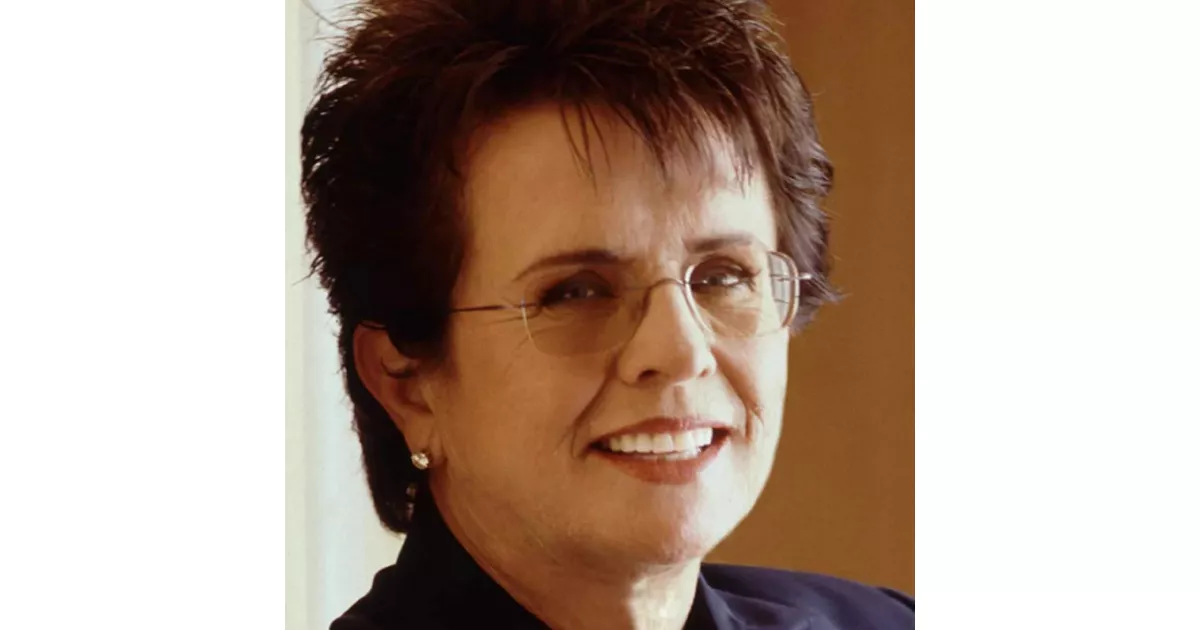Public opinion and media debates around Billie Jean King—discover key moments of controversy.
Billie Jean King, a former world No. 1 American tennis player, achieved remarkable success with 39 Grand Slam titles, comprising 12 singles, 16 women's doubles, and 11 mixed doubles victories. She significantly contributed to the United States' triumphs in seven Federation Cups and nine Wightman Cups, solidifying her legacy as a dominant force in women's tennis.
1965: Loss to Margaret Court in U.S. Championships
In 1965, Billie Jean King lost in the final of the U.S. Championships to Margaret Court despite leading in both sets. The United States Lawn Tennis Association overruled their ranking committee's recommendation to award her the sole U.S. No. 1 position and ranked Nancy Richey Gunter and King as co-U.S. No. 1.
1967: Criticism of USLTA
In 1967, Billie Jean King criticized the United States Lawn Tennis Association (USLTA) for its "shamateurism", arguing that the practice of paying top players under the table was corrupt and elitist.
September 1970: King's Activism and the Virginia Slims Invitational
In September 1970, Billie Jean King, along with eight other women, boycotted the Pacific Southwest Open due to the significant disparity in prize money between men and women. The top prize for men was $12,500, while for women it was only $1,500, with women not receiving expense coverage unless they made the quarterfinals. They organized the women-only Houston Virginia Slims Invitational, launching a series of women-only tournaments.
1971: Affair with Marilyn Barnett
In 1971, Billie Jean King began an affair with her secretary, Marilyn Barnett.
1971: Abortion Made Public
In 1971, King had an abortion that was made public in a Ms. magazine article without her consent.
1972: US Open Disparity in Prize Money
In 1972, Billie Jean King won the US Open but received US$15,000 less than the men's champion, highlighting the inequalities in prize money at the time.
1972: King's Admission Regarding Retirement in St. Petersburg
In early 1972, Billie Jean King admitted that cramps associated with an abortion caused her to retire from the match with Chris Evert in St. Petersburg in 1971, despite initially claiming it was due to leg cramps.
March 1977: King Requests Wild Card and Plays in San Antonio
In March 1977, Billie Jean King requested a wild card entry to the Virginia Slims Championships. She also participated in the Lionel Cup tournament in San Antonio, Texas, which was criticized due to the inclusion of Renée Richards, a transgender athlete. King eventually won the tournament.
1979: Barnett Asked to Leave the Kings' House
In 1979, the Kings asked Marilyn Barnett to leave their house, but she refused and threatened to leak records and receipts.
May 1981: Palimony Lawsuit by Barnett
In May 1981, Marilyn Barnett sued the Kings for half their income and the Malibu house after a suicide attempt, leading Billie Jean King to publicly acknowledge the relationship.
December 1981: Court Order in Palimony Suit
In December 1981, a court order stipulated that Barnett leave the house. Barnett's threats to publish private correspondence between her and King in exchange for money was considered extortion.
November 1982: Palimony Suit Dismissed
In November 1982, Barnett's palimony suit against King was thrown out of court.
1982: King's Autobiography and Intentional Loss
In her 1982 autobiography, Billie Jean King claimed that she intentionally lost a match in Long Beach to Françoise Dürr due to an argument with her husband.
1999: Election to Philip Morris Board of Directors
In 1999, Billie Jean King was elected to the board of directors of Philip Morris Incorporated, which garnered criticism from anti-tobacco groups.
2002: Capriati Dismissal from Fed Cup Team
In 2002, Billie Jean King dismissed Jennifer Capriati from the Fed Cup team for violating rules about personal coaches, sparking controversy.
Mentioned in this timeline

Sir Elton John is a highly successful British singer songwriter...

Barack Obama the th U S President - was the...
California is a U S state on the Pacific Coast...
Sports Illustrated SI is an American sports magazine launched in...
New Zealand is an island country in the southwestern Pacific...

Los Angeles is the most populous city in California and...
Trending

23 minutes ago Kristi Noem faces affair allegations as questions arise about Corey Lewandowski relationship.
24 minutes ago Broadcom Earnings Anticipated Amid Tech Stock Breakout Predictions and Growth Stock Hopes.

1 hour ago Aaron Rodgers' Potential NFL Free Agency Destinations: Steelers Update and Team Fits.

1 hour ago Reid Hoffman's connection to Jeffrey Epstein and Silicon Valley scrutinized in news reports.
2 hours ago White House briefing addresses Iran war concerns, potential US strikes, and war powers.

3 hours ago Tyler Myers traded to Dallas Stars from Vancouver Canucks for draft picks.
Popular

Ken Paxton is an American politician and lawyer serving as...

Hillary Diane Rodham Clinton is a prominent American politician lawyer...

Jesse Jackson is an American civil rights activist politician and...

Jim Carrey is a Canadian-American actor and comedian celebrated for...

Bill Clinton served as the nd U S President from...

XXXTentacion born Jahseh Dwayne Ricardo Onfroy was a controversial yet...
